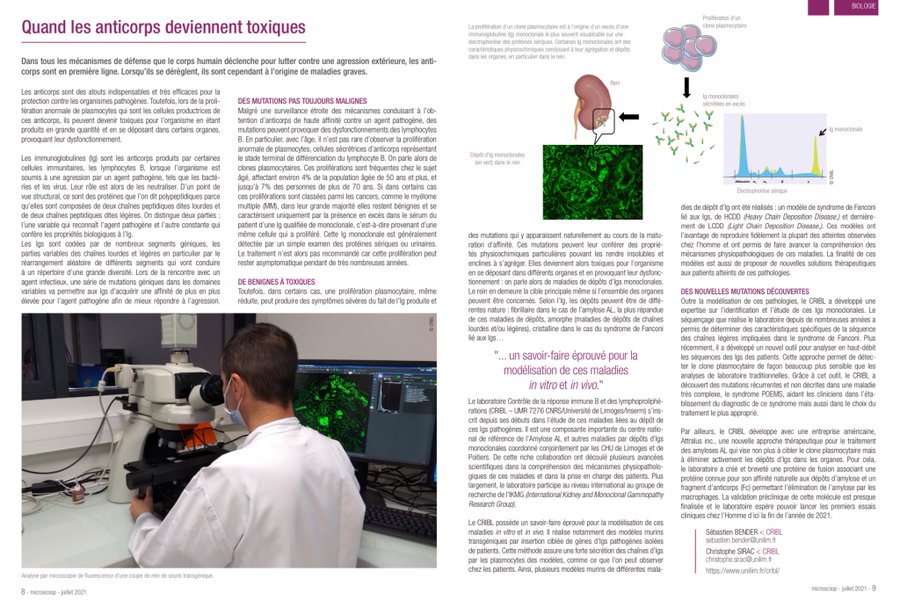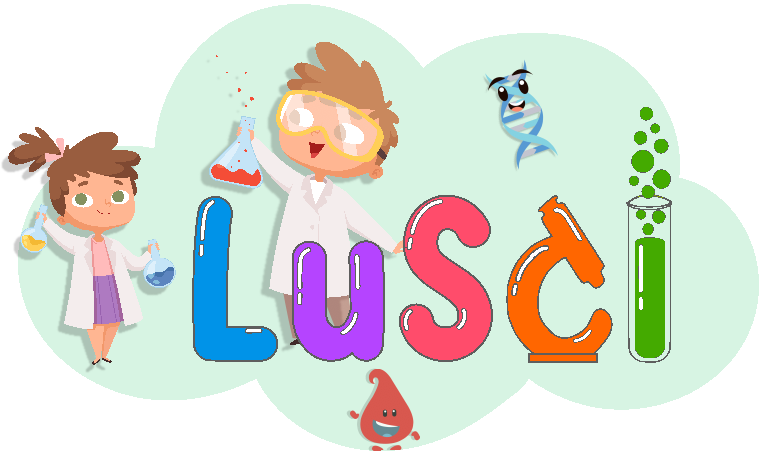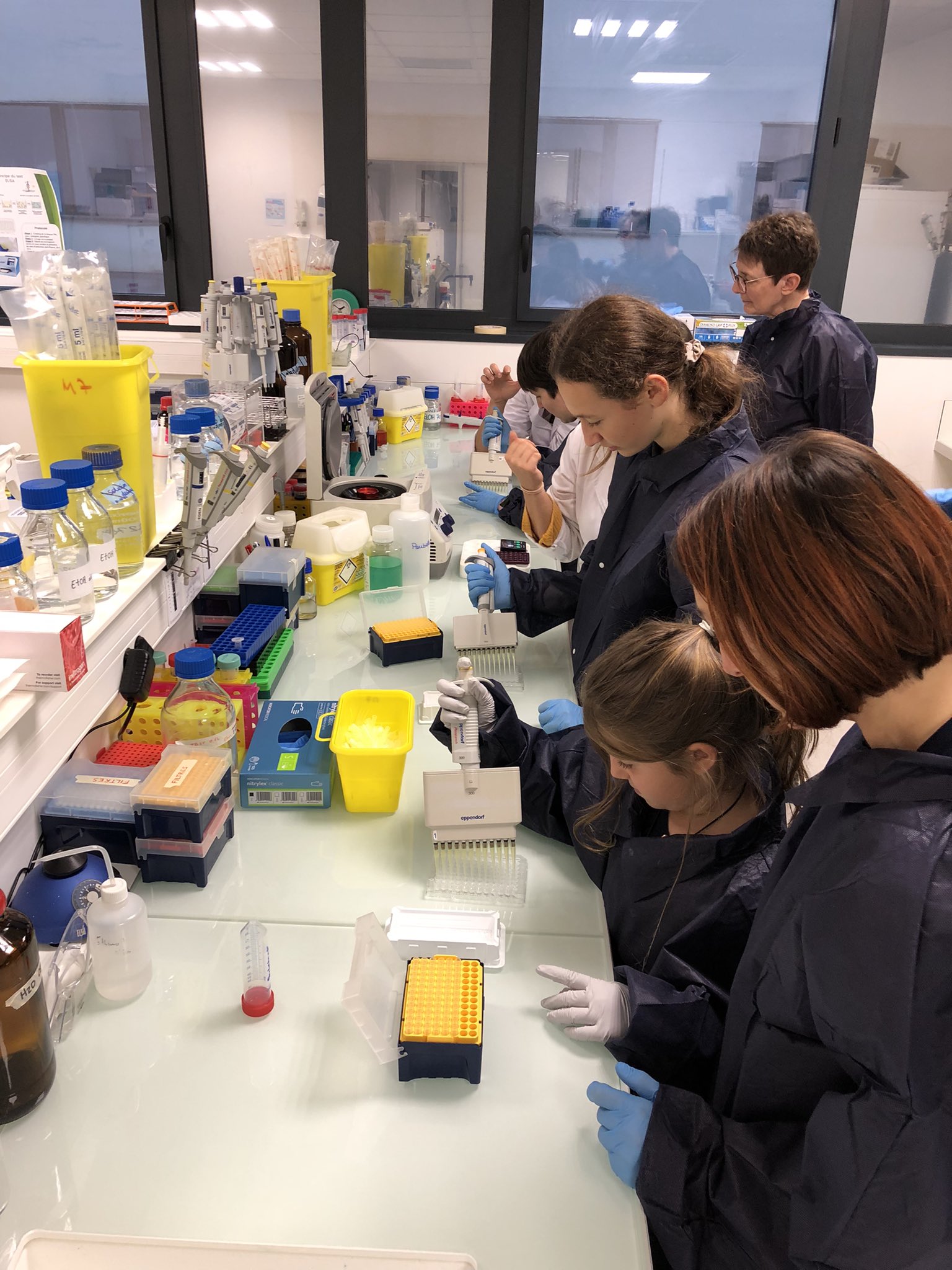Education
Members of the laboratory (PhD students, researchers, technical staff) are heavily involved in university training, particularly in the Biology and Health Masters programs of Limoges University.
Scientific popularization
Microscoop is a journal which, through articles from its laboratories, introduces readers to the scientific themes being developed in the Centre Limousin Poitou-Charentes region. The subjects published are proposed by scientists or laboratory communication correspondents.
The CRIBL laboratory participated on several occasions by developing articles on the research work of its teams:
– Microscoop #38 (february 2001) :
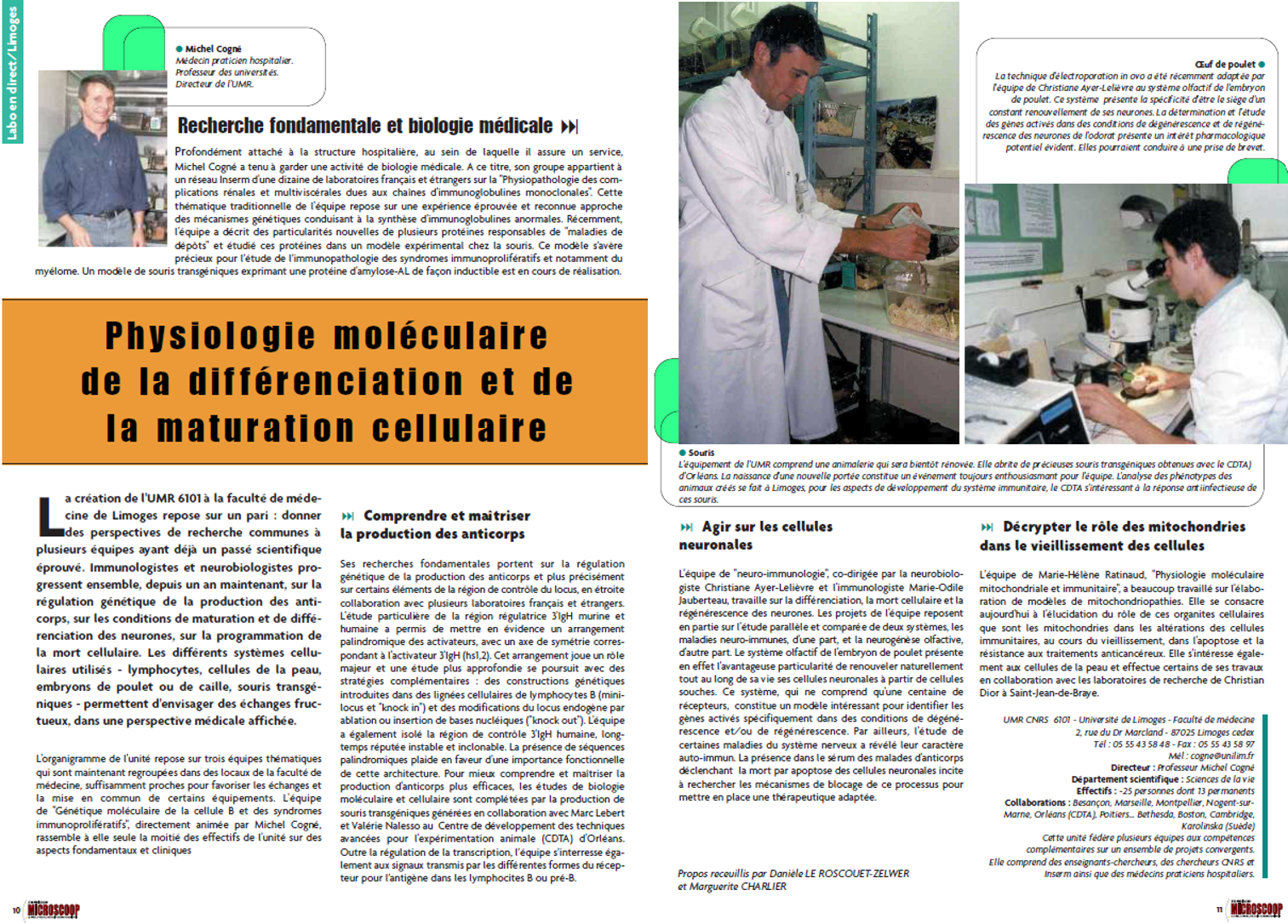
– Microscoop Hors-serie #12 (october 2003) :
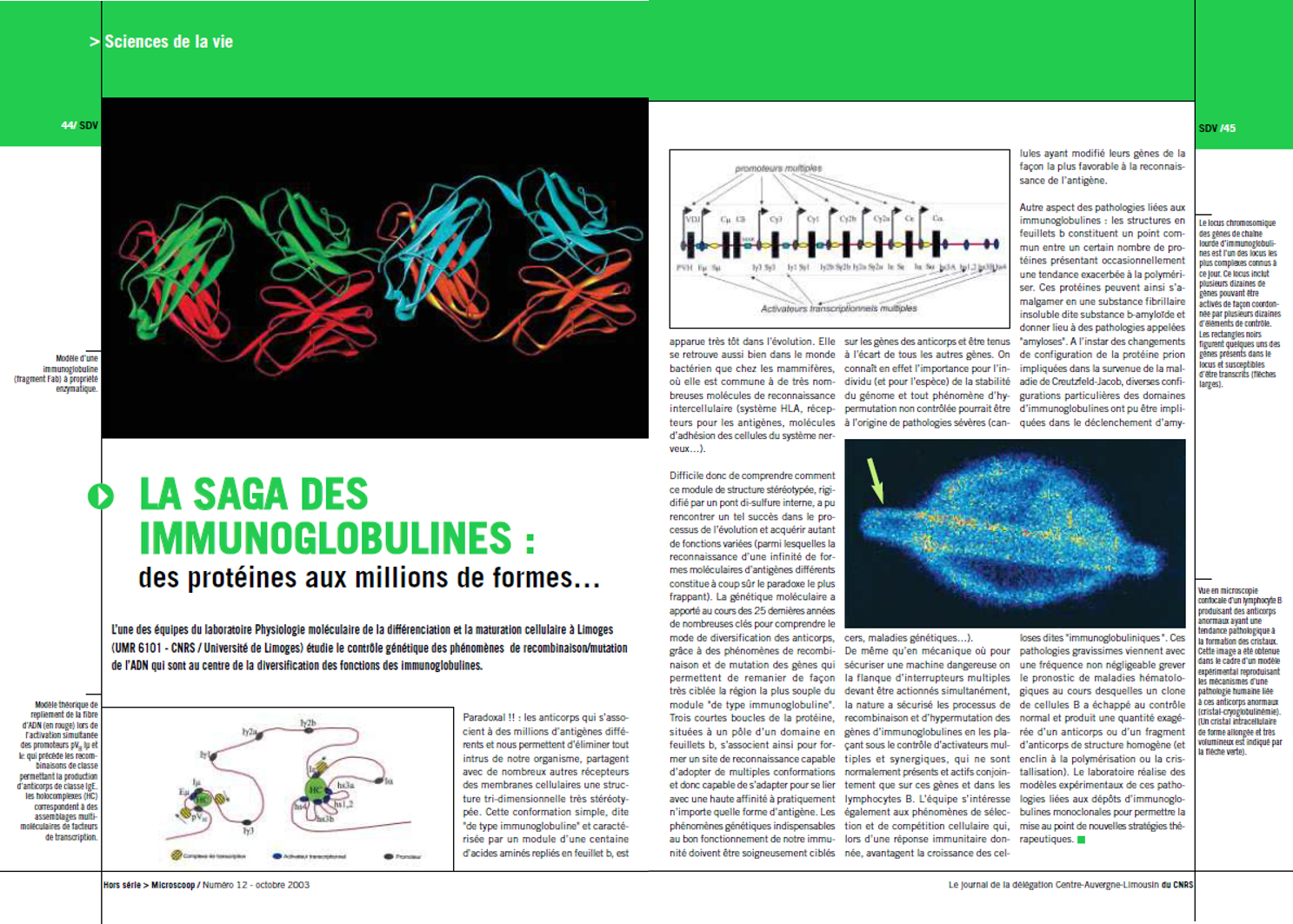
– Microscoop #73 (February 2016) :
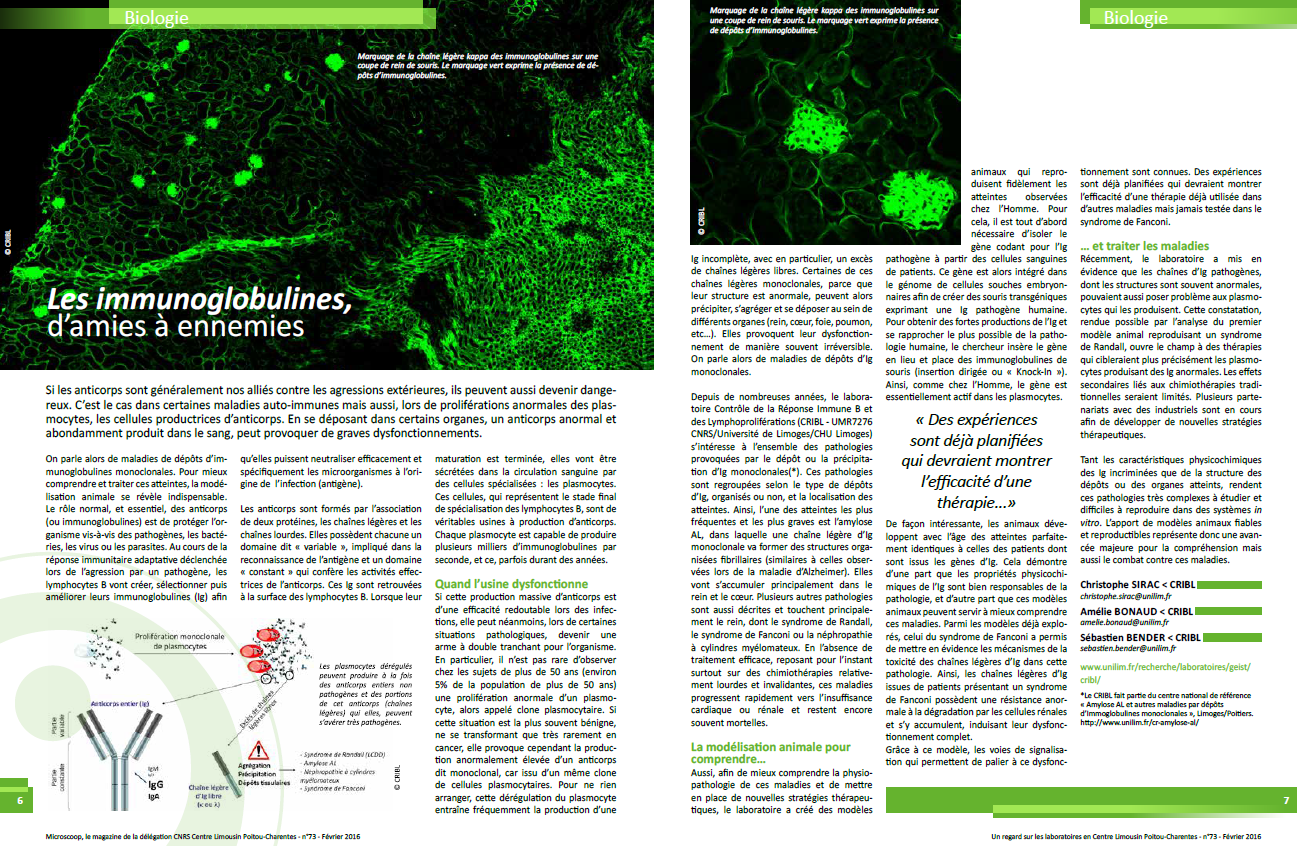
– Microscoop #77 (february 2018) :
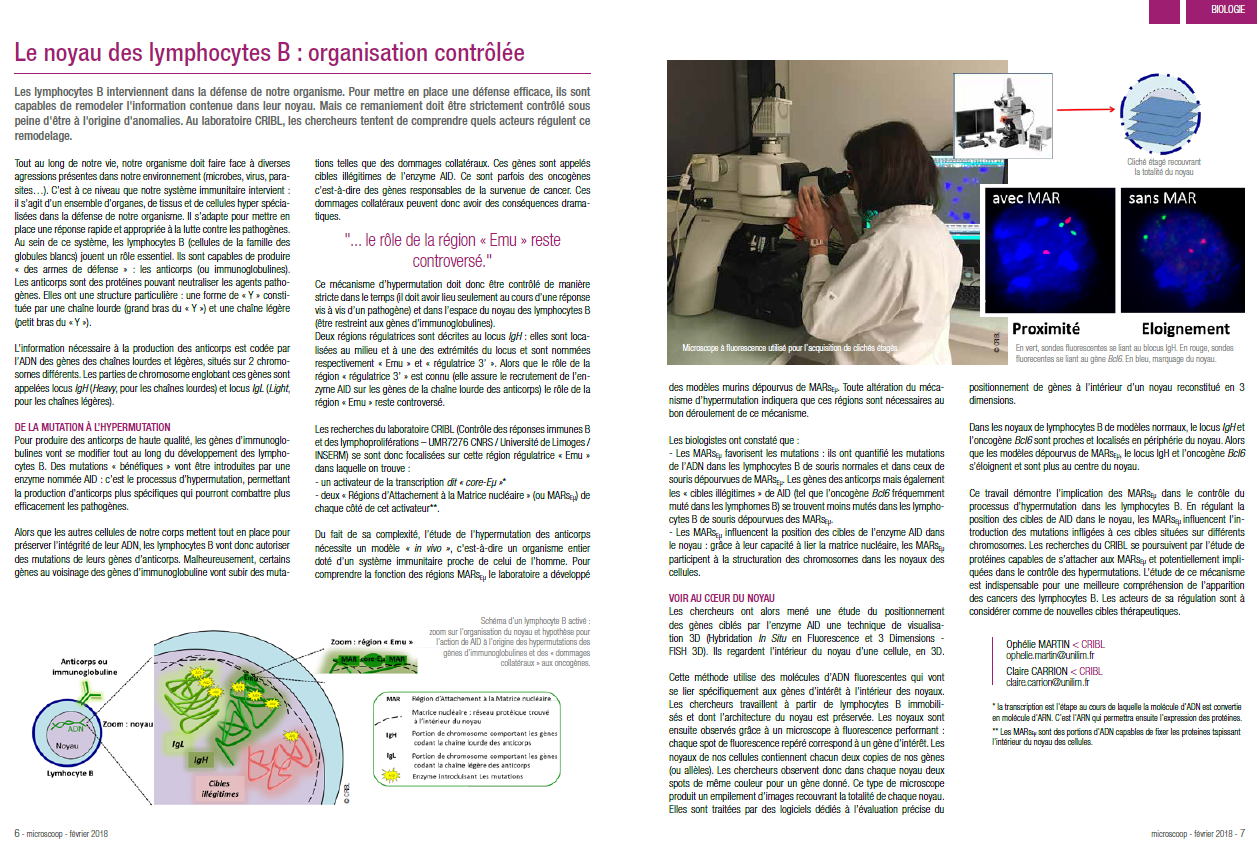
– Microscoop #84 (july 2021) :
– Microscoop Hors-Série #23 (octobre 2023) :
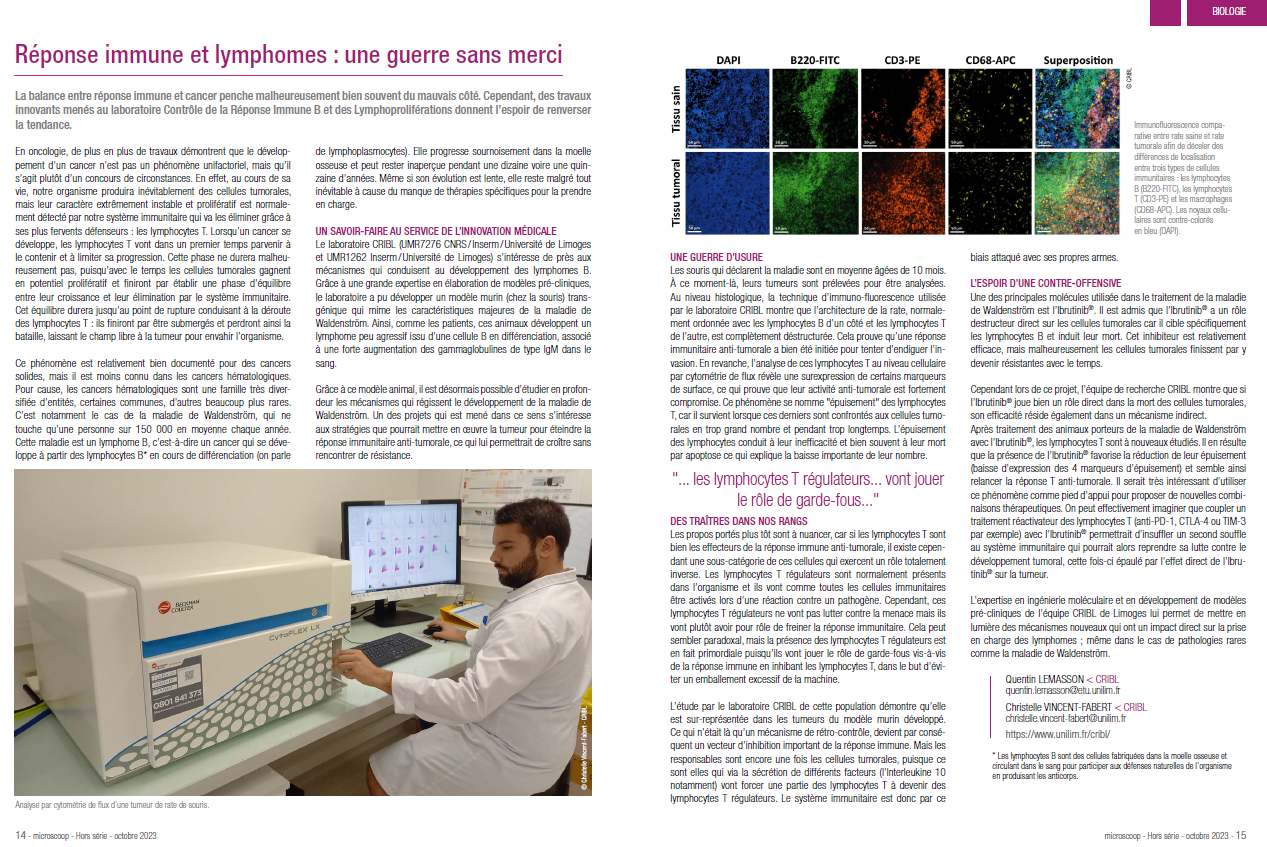
– Microscoop #89 (mars 2024) :
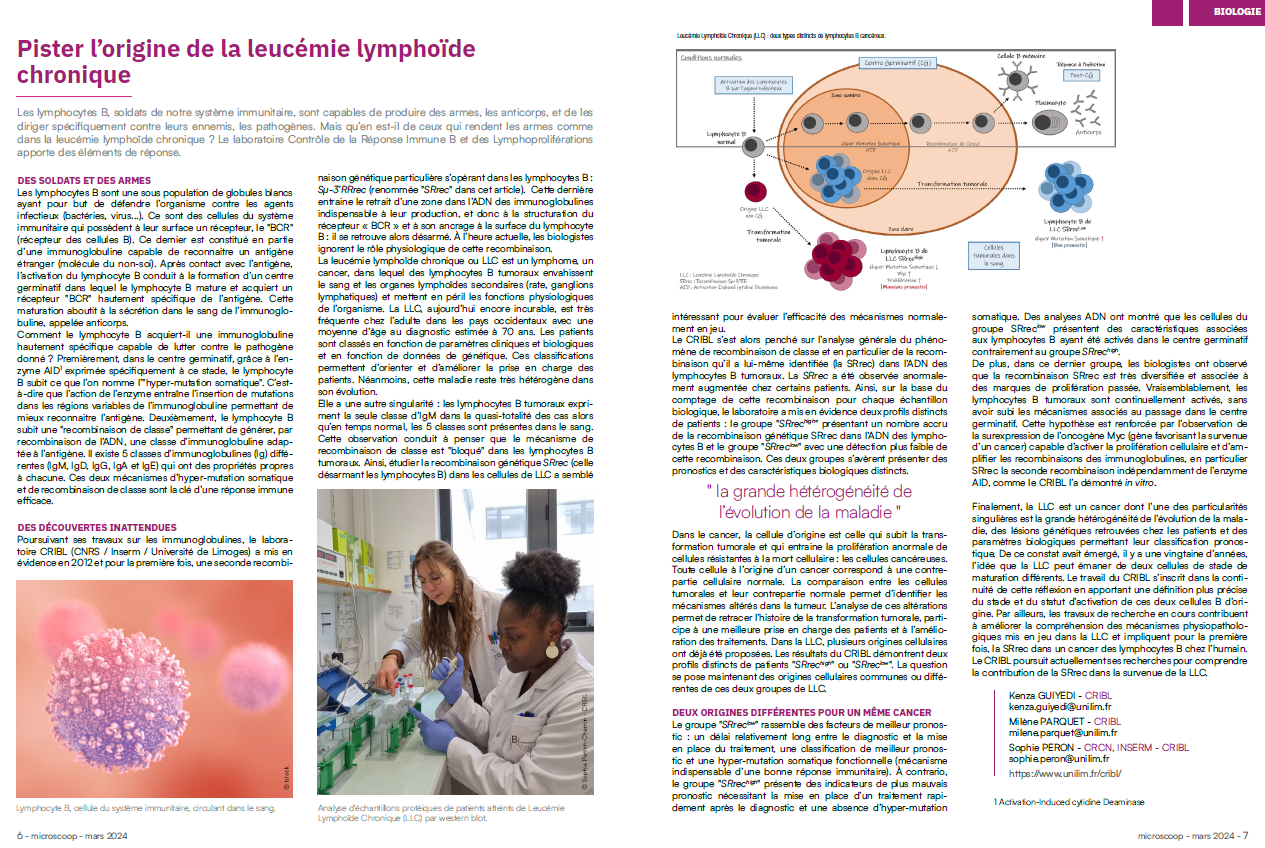
We’ve come up with a traveling science workshop (LuSci: Ludique et Scientifique) in the Haute Vienne region. The aim of this workshop is to bring a mini-laboratory to elementary school classes (from CE2 to 6ème), particularly in rural areas where access to scientific culture is limited by geographical remoteness.
The ultimate aim of this approach is to show children that science is part of our daily lives, and within everyone’s reach. To achieve this objective, we have chosen to offer a fun, dynamic workshop alternating discussions and experiments, in which the pupil is an actor rather than just a spectator. In this way, they can learn about science through questioning and experimentation.
The workshop has been running since 2015, based on an original idea by Anne Druilhe, Sandrine Le Noir and Claire Carrion.
Coordination: Sandrine Le Noir, Claire Carrion and Thomas Navès
Facilitators: Sandrine Le Noir, Claire Carrion, Thomas Navès and volunteer staff from all ΩHealth institute laboratories.
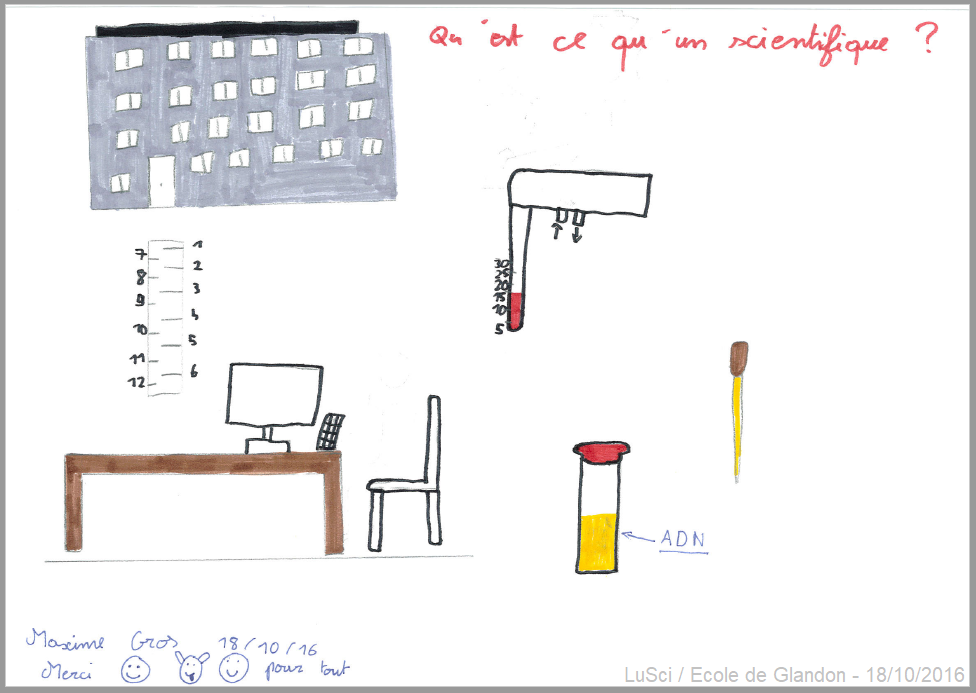
The laboratory also takes part in the activities of Scientibus (a mobile scientific experimentation laboratory), whose events are aimed at the general public as well as schools.
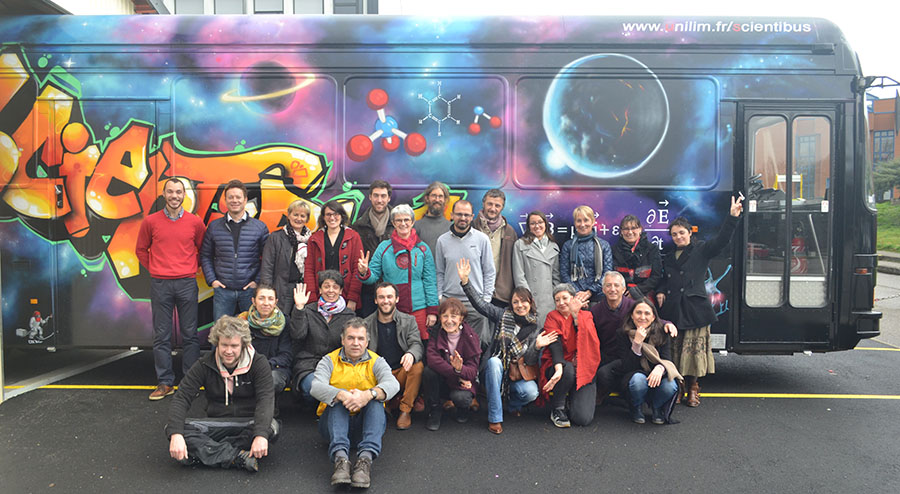
CNRS opens the doors of its laboratories, observatories, scientific platforms and research sites in France. During the Fête de la Science, our unusual tours will take you to the heart of research and give you an insight into our facilities.
Each year, the unit takes part in this event and opens its doors to a dozen or so visitors who, for a few hours, will discover our premises, our research themes around the B lymphocyte, and get to work like immunology researchers.
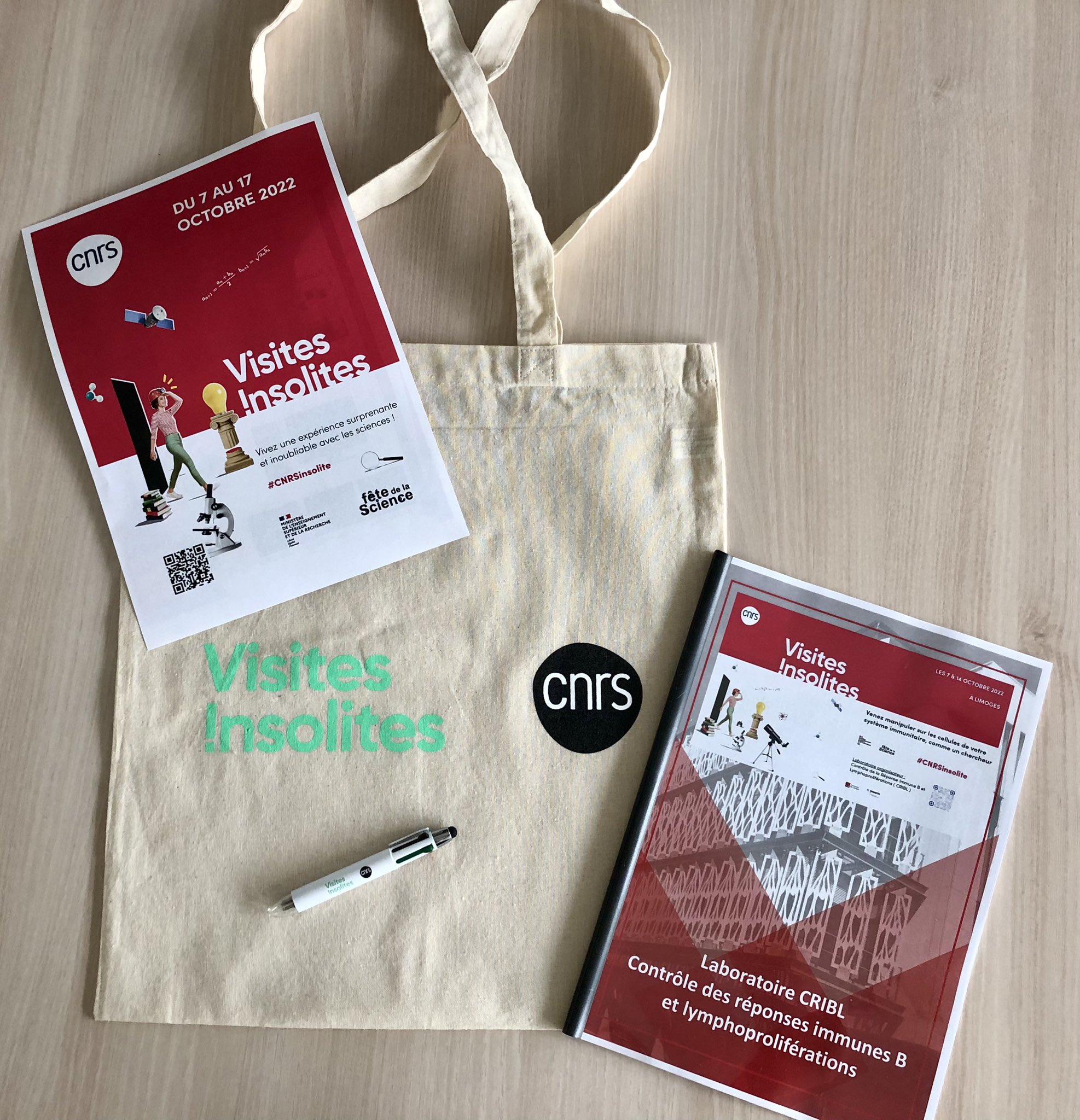
Each year, the public meets up with researchers from all disciplines and backgrounds (ecology, literature, physics, heritage, health…) in unusual locations (warehouses, museums, castles, parks…) in atmospheric settings, for discussions in the dark or in limited time…
The public will be confronted with the tough choices made by researchers on a daily basis, and the evening will be an opportunity to think together, contribute, discuss and learn!
In Limoges, this event is organized by the University of Limoges and in particular the service de diffusion de la culture scientifique. On this occasion, our researchers present the laboratory’s work and related research professions.
Our researchers are always delighted to welcome middle and high school students to give them an insight into the research professions and the topics covered at the laboratory.
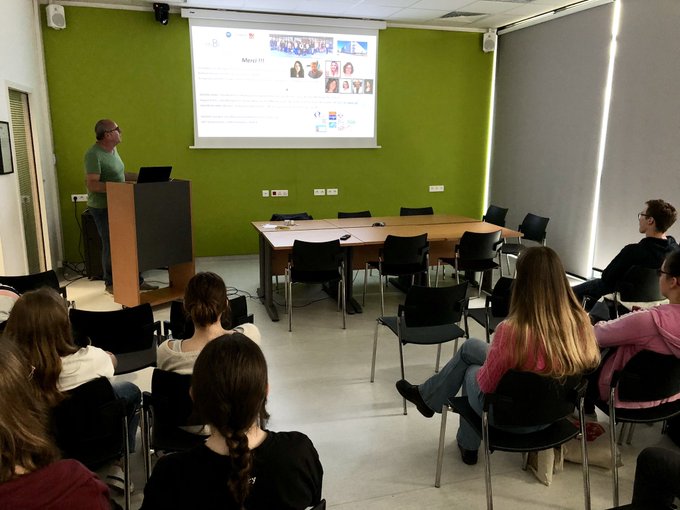 1ere SVT class – Lycée Limosin, Limoges (May 2023)
1ere SVT class – Lycée Limosin, Limoges (May 2023)
The Year of Biology, initiated by the French Ministry of Education and Youth, was co-organized and implemented by the CNRS. This training initiative, aimed at life and earth sciences (L&E) teachers in junior high, high school and post-bac, began in the spring of 2020, in the midst of the Covid-19 pandemic.
Initially scheduled for the start of the 2021-2022 school year, the training days were frequently postponed, ending in December 2022. In Limoges, this event took place on Tuesday, April 5, 2022.
The CRIBL unit was one of the CNRS laboratories involved in this training day. Eric Pinaud and Laurent Delpy opened the day with plenary presentations, including a lecture on “The rise of RNA therapies” (Laurent Delpy, introductory lecture). The afternoon consisted of laboratory tours and themed workshops led by technical staff including, for CRIBL: Claire Carrion (fluorescence microscopy workshop) and Catherine Ouk (flow cytometry workshop).
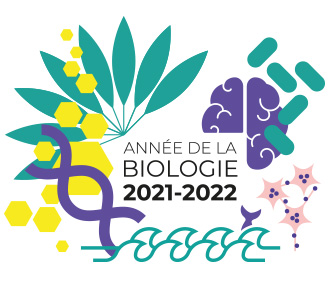
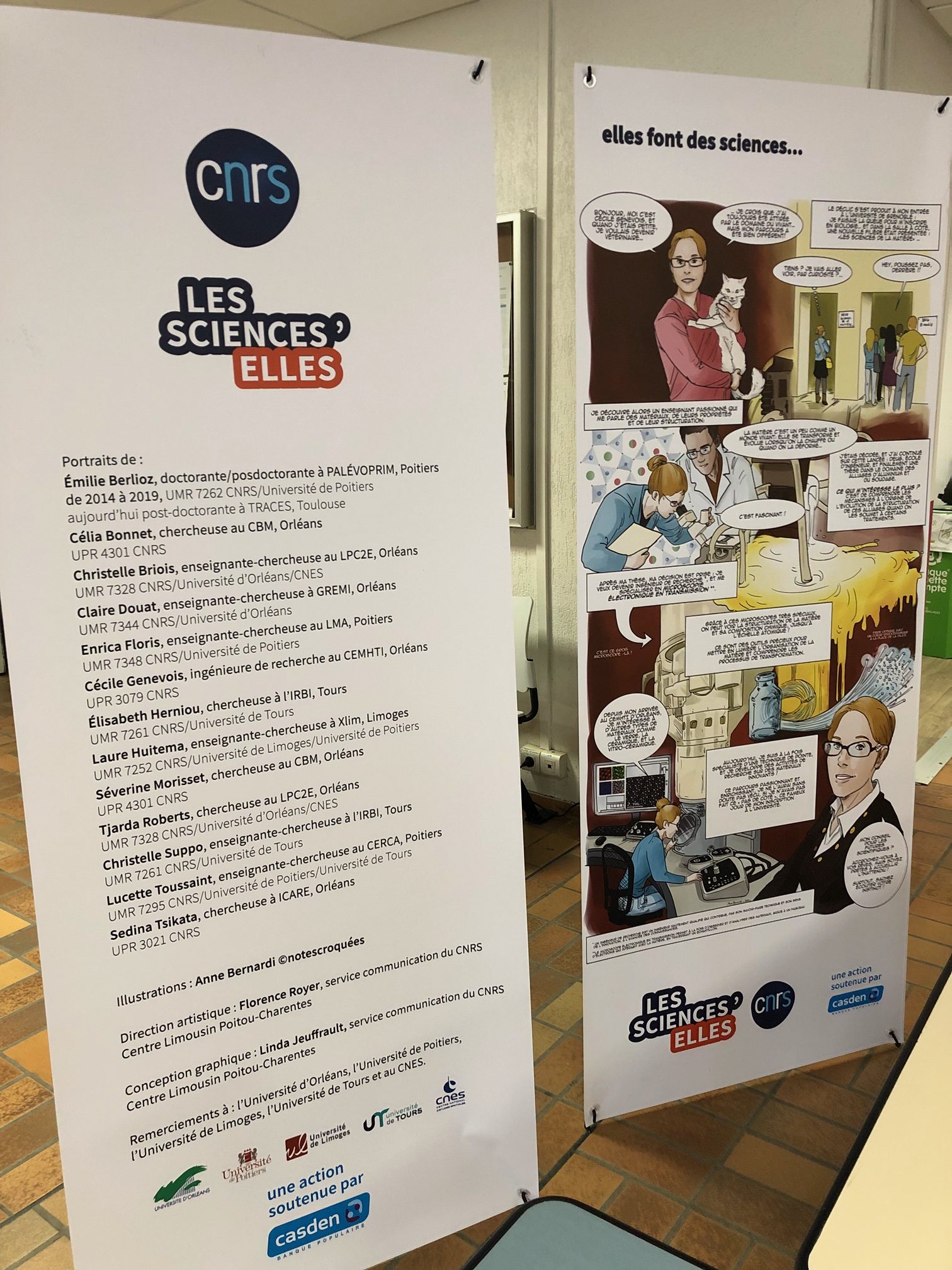

Eric Pinaud et Laurent Delpy
Three minute thesis enables doctoral students to present their research topic, in French and in simple terms, to a diverse audience. Each student must give a clear, concise yet convincing three-minute presentation of his or her research project.
Milène Parquet :
Kenza Guiyedi :
Alexis Saintamand :
Christophe SIRAC : Curieux! is an information site that fits into our daily lives, separating the true from the false and whetting our curiosity. In this 2min.40 video, Christophe Sirac answers all the questions people have about good and bad antibodies:
Morgane THOMAS : Morgane Thomas, a PhD student in the CRIBL laboratory, works on antibodies. In this video, she tells us about her work as a researcher.
Laurent DELPY : Is it possible to reconstitute part of a gene’s code or modify a gene’s code? Laurent Delpy, CNRS Research Director and Head of the BioPIC team at the University of Limoges, talks about exon skipping!
Video produced in paid partnership with the University of Limoges as part of the “Portraits of researchers” series!
The Service de Diffusion de la Culture scientifique de l’Université de Limoges and France Bleu Limousin are working together to highlight the research carried out in the University’s research laboratories. A popular science chronicle, a 2 to 3-minute spotlight on subjects that have an impact on society. It’s a great way to showcase the innovative projects developed by our researchers, and to raise public awareness of the societal issues raised by university research.
Christophe SIRAC :
Hussein ISSAOUI :
Amyloidosis, a rare disease affecting organs, studied in Limoges. This disease affects between 5 and 6,000 people in France. Amyloidosis prevents certain organs from functioning, notably the heart, with consequences that can be dramatic. The Limoges University Hospital is home to the national reference center for this pathology, and treats patients from all over the country.
Speakers: Eliane Hilleriteau, Pr Arnaud Jaccard, Hematologist, Limoges University Hospital and Christophe Sirac, Researcher, University of Limoges.
Reported by F.Clapeau, JM.Arnal and B.Boulesteix.

